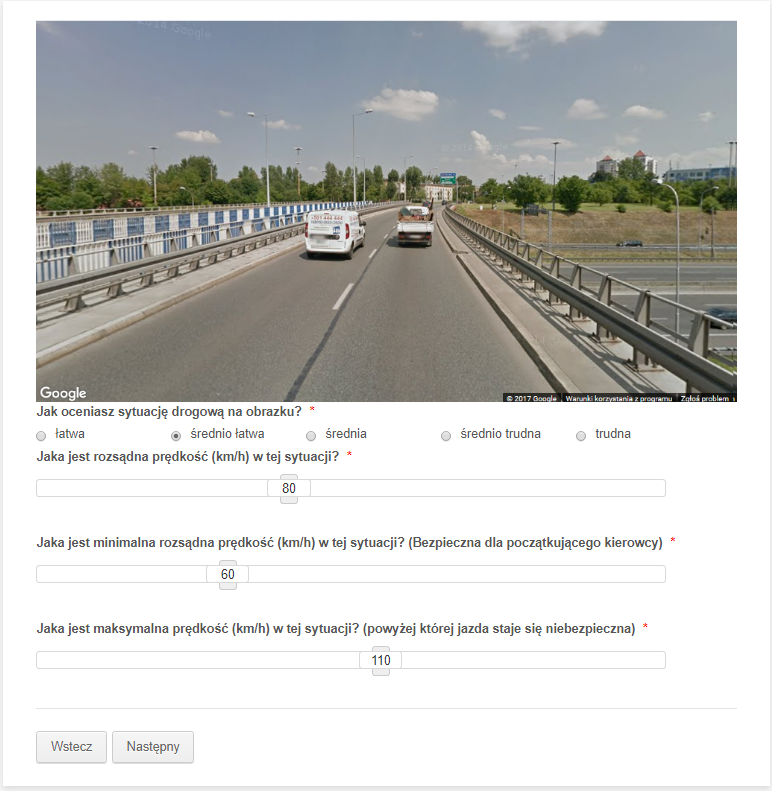COCADOO- COgnitive CAr Driving OpiniOns
Przemysław Skurowski, Marcin Paszkuta
Link to dataset: cocadoo.7z
Link to survey results: cocadoo_mos.ods
The experimental, ground truth database for the driving difficulty was obtained with crowd sourcing. The survey was conducted with web forms, presenting the road situation to the respondents, who were asked to quantify the driving situation in 5-grade adjective scale:
- easy,
- somewhat easy,
- moderate,
- somewhat difficult,
- difficult.
For which numerical values 1..5 were assigned. The other criteria were related to the recommended speed in kilometers per hour (km/h) in the scene, these are:
- reasonable speed,
- minimal reasonable — suitable for the novice driver,
- maximal — above which the driving becomes dangerous for the driver or the others.
The forms are in Polish and were presented to the Polish native speakers, if wearing glasses asked to wear them as ordered by physician.

Fig. 1 Questionnaire form
Respondents analyzed 23 images obtained from Google Street View that presents the standard road situation This photos presented the standard traffic such as one-way, two-way, multi-band road, junctions, and roundabouts. Images had 90 field of view (FOV) in panoramic aspect ratio.

Fig. 2 Source images
The respondent group consisted of 70 people, of whom almost two-thirds were men. The research was conducted among students and employees of the Department of Automatics, Electronics and Computer Science. Interviewees were grouped by age in the following ranges: 18-29, 30-39, 40-49, 50-59 and over 60. The two largest age groups are those in the range from 18 to 29 and from 30 to 39. One of the first questions in the poll was about the period of holding a driving license. Almost two thirds surveyed people had a driving license for more than 10 years. This may suggest that most of them were experienced drivers. Another question was about the knowledge of the Katowice, the city in which analyzes were carried out. Almost two-thirds of the respondents knew this city.







